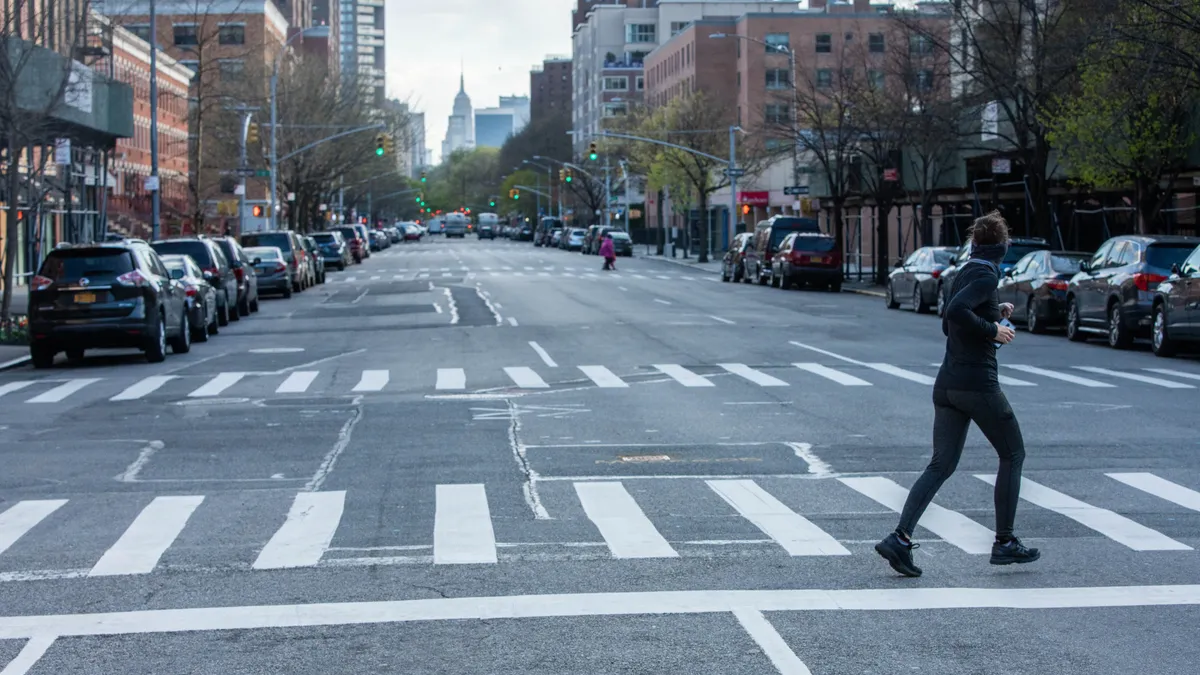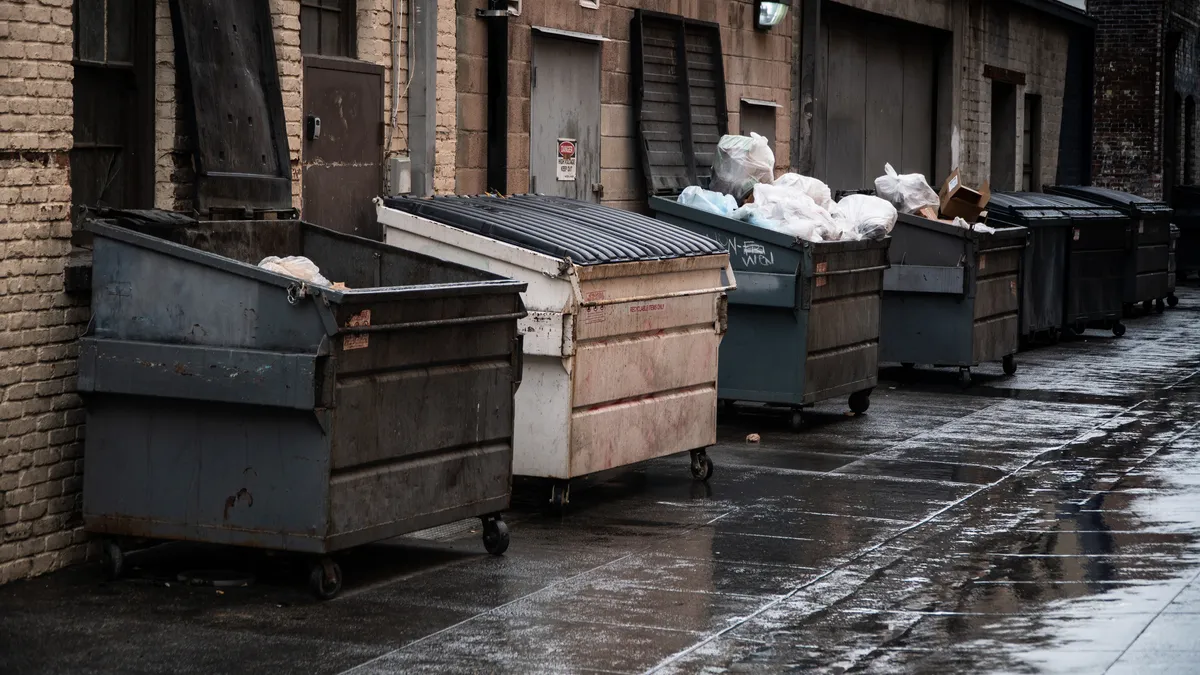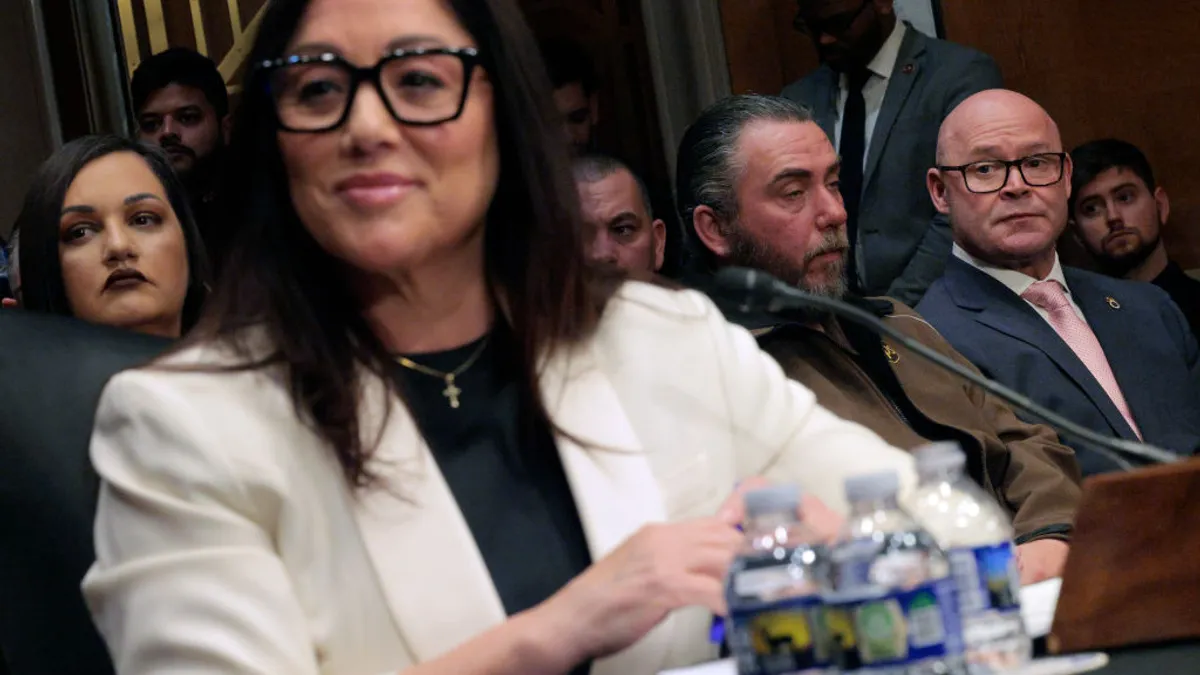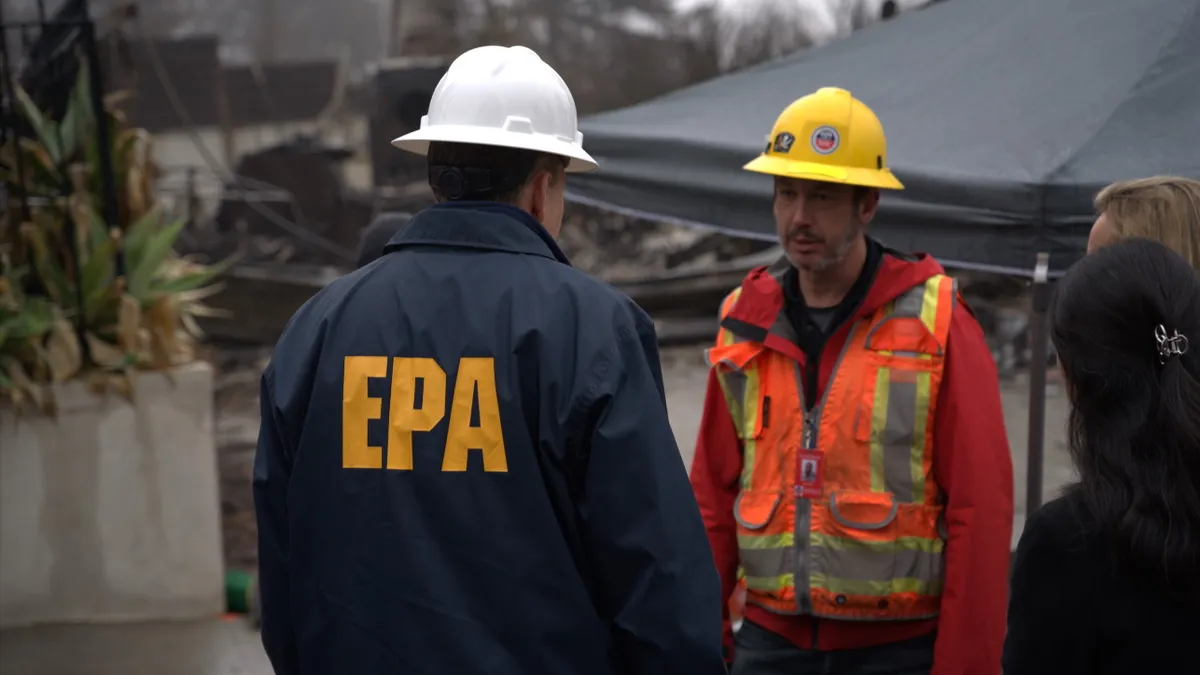This spring, New York's commercial waste sector was planning to submit bids for a transformative new franchise zone system. Instead, haulers are now dealing with an even more existential event – the new coronavirus.
As the epicenter for COVID-19, New York has also been one of the most heavily affected commercial waste markets in the country. The city's current roster of commercial haulers have no role in the residential sector and a number of them don't do business outside the five boroughs. Hundreds of workers have been laid off. Dozens or more have become ill with the virus. Companies of all sizes are meanwhile reporting double-digit volume declines, with many unsure how much business will come back.
Recognizing this upheaval, the city's Department of Sanitation (DSNY) has twice delayed the timing of a late spring request for proposals to bid on the new zones. Commissioner Kathryn Garcia announced a one-month delay on March 27, but the pandemic's effects have become more clear in the weeks since.
The National Waste & Recycling Association's local chapter (representing companies such as Interstate Waste Services and Waste Connections) subsequently advocated for a one-year delay, saying there is "no constituent that will be well served by a rush to design and implement amidst such uncertainty."
Last Friday, DSNY told stakeholders the earliest an RFP could be released is this fall. Many people described this as a foregone conclusion beforehand and reacted accordingly.
“DSNY’s decision to delay the issuance of the RFP until the Fall is not surprising, given current public health and economic conditions in New York City and their adverse impact on both the carters and their customers," said Solid Waste Association of North America David Biderman in a statement, adding the group remains in "close contact" with stakeholders.
The city noted this reality in its own explanation.
“An overwhelming majority of businesses remain closed or operating at a limited capacity, and commercial waste carters continue to endure the suspension of significant shares of their customer accounts and revenue," wrote Garcia. "While there is hope that the City and State may begin to lift some restrictions in the coming weeks and months, the economic toll of this crisis will continue for quite some time."
The new normal
New York commercial waste haulers are well-acquainted with operating amid the obstacle course of city nightlife. Lately, streets have been eerily quiet and routes are going much quicker. Outside of activity around locations such as healthcare facilities, grocery stores, bodegas and some foodservice establishments, there is minimal waste being generated.
“For us, it’s had a material impact on our business, there’s no doubt about that," Jason Craft, Eastern region vice president for Waste Connections, told Waste Dive. Craft, who called DSNY's new decision "incredibly prudent," reported “Manhattan has been significantly impacted" and volumes are down 30% citywide.
Like others of varying sizes, Waste Connections has laid off employees in recent weeks. Teamsters Local 813 and Laborers Local 108 negotiated a deal with national executives to cover the health benefits of affected members through July.
“We held on to folks for about a month after it originally hit, longer than some of our peers to be honest," said Craft. Waste Connections tried to postpone these effects by reducing hours and encouraging employees to use paid time off, while also implementing a national $2 hourly increase. According to Craft, the idea behind the July benefits decision was "hopefully at some point we’re bringing the majority of these guys back before that."
Recent relations with the local industry's second-largest player were described as positive by the two unions involved.
“I think Waste Connections was really fair, there was no arm twisting. They stepped up, they offered to do this," said Local 813 President Sean Campbell. “The company has been extremely reasonable."
DSNY workers have become sick by the hundreds, including multiple fatalities, and New York's private sector employees have also been affected. Access to personal protective equipment was said to be generally sufficient – albeit challenging at times – but the exposure risk is still high for local residents. No private sector fatalities have been reported to date, but the unions said numerous members have tested positive for COVID-19.
In addition to the usual precautions being taken industry-wide – cleaning truck cabs, staggering start times – many companies are also altering their approach to sick leave or attendance policies.
“Employers have been very flexible," said Mike Hellstrom, secretary treasurer of Local 108. “If workers wanted to take a layoff, if they wanted to not actually be subject to the environment, companies weren’t frowning upon it."
While the local industry's two largest companies (Interstate Waste Services and Waste Connections) are too large to qualify for federal loans, that's not the case for others.
Tom Toscano, president of Mr. T Carting, delayed layoffs in anticipation of receiving Paycheck Protection Program (PPP) funding. He applied for four companies, but only one made it through the first round. It was his hauling company, which comprises about 85% of payroll, so operations remain stable.
“We were overcapacity in volume. So obviously when this happened the first thing that went was all the overtime," said Toscano. Now, drivers are just doing much shorter shifts. “Some of our trucks only go out three or four hours a night. I thought it better to do that and have the capacity when this comes back hopefully."
Mr. T is using downtime to deal with warranty issues on new trucks, and at least one other company reported a similar approach to catching up on preventative fleet maintenance. Many also said the shift had prompted notable routing changes. Mr. T, for example, has seen its reliable weekend business all but evaporate.
“For the most part we’re going to be a Monday through Friday company, for the time being," said Toscano.
Gino Fava, owner of Liverpool Carting, also received a PPP loan. The company services high-end Manhattan retailers and townhouses that want more frequent collection than DSNY provides, but about 450 of its 500 accounts are dark.
“Instead of sending two trucks out for six or seven hours, I send one truck out for two hours," said Fava. “It really helped me a great deal, because the people that work for me are guys that live in Ozone Park and the Bronx and they have families and rent and have to put gas in their car."
In yet another sign of New York's current situation being far from normal – or perhaps just because traffic has declined so much – the city's Business Integrity Commission is also recording more unlicensed or unregistered haulers coming in from outside the five boroughs. The agency wrote 92 violations in March (more than double the totals from prior months) and estimates writing another 100 in April, many of which were for C&D haulers.
Looking ahead
Many of the considerations New York haulers were making leading up to the waste zone bidding process have been upended. Acquisition plans are being reconsidered and strategies to focus on customer bases in certain geographies could be harder to execute. Volume estimates that informed the city's recently finalized 20-zone map may no longer be relevant.
Even Local 813, the policy's most forceful supporter, is taking a pause. “I don’t even think now is the time to really talk about this," Campbell said when asked whether he thought implementation timing should be delayed (before DSNY's announcement), and recommended waiting until "we get through this crisis."
Another evolving factor is whether cuts to New York's FY21 budget, still under negotiation, could affect necessary staffing or resources. Asked for updated projections on implementing commercial waste zones, Director of Communications Belinda Mager said DSNY was currently working with budget officials "to assess fiscal and personnel needs." According to Garcia's latest letter, the agency remains "committed to implementing this program and fully realizing its benefits for all New Yorkers."
With the city's financial outlook so unpredictable, many executives are watching closely for any positive signs. Craft said Waste Connections is now seeing more service increases than decreases.
“I’m cautiously optimistic about at least seeing some amount of recovery, and we’ll continue to pray for good things to happen," he said.
Recycle Track Systems also reported early signs of hope.
“I’m seeing some of the restaurants stabilize with the contactless orders and the deliveries. Places are open or have increased service very, very slightly," said CEO Gregory Lettieri, adding on-demand business is also up. “But for the majority of office buildings and hotels, it’s obviously at almost a standstill."
While some New York haulers have multi-state footprints and significant financial backing, that isn't the case for dozens of others. Concerns about long-term viability were already a factor for some heading into the RFP process, and the pandemic downturn could exacerbate that. But at least one small hauler still intends to compete.
Fava said Liverpool Carting would buy a fourth truck "as soon as the smoke clears" and could buy more to make its bid stronger. He didn't view the company's small size as a problem, even if economic difficulties continue, touting savings and a different approach than some others in the local industry.
“The longer it goes I don’t know what happens to these big companies," he said. "Being a small company, I never had to lay out money for a recycling facility, or a landfill, so I was able to keep my debt down. Which is helpful now."























